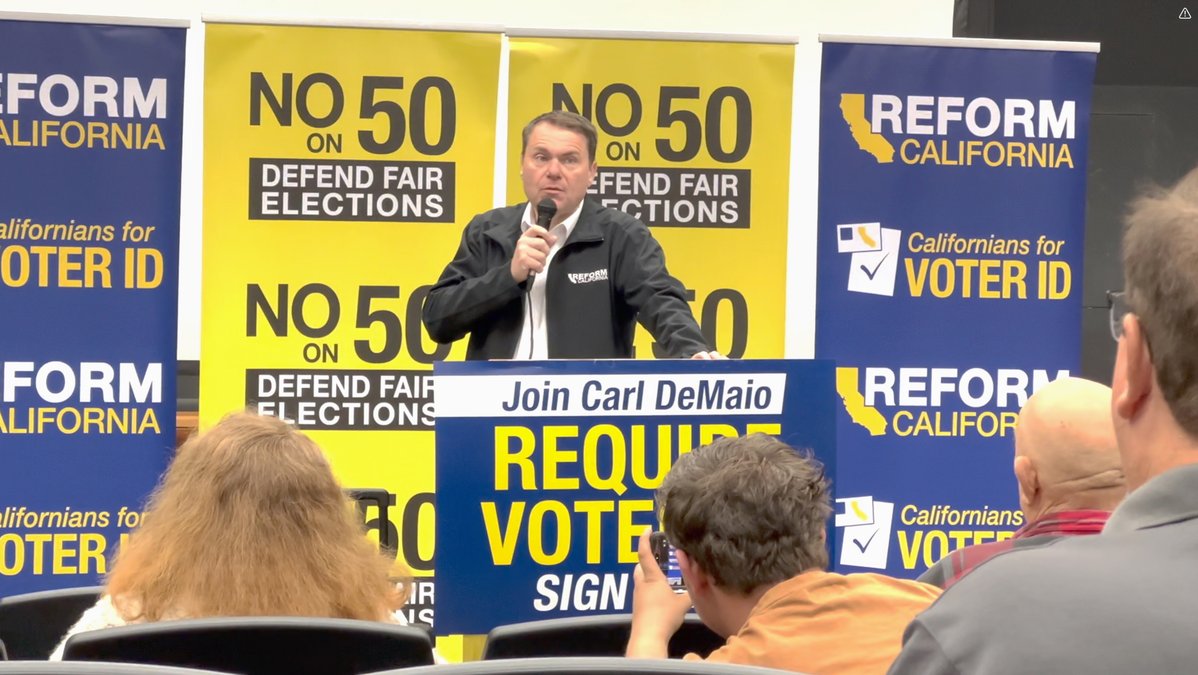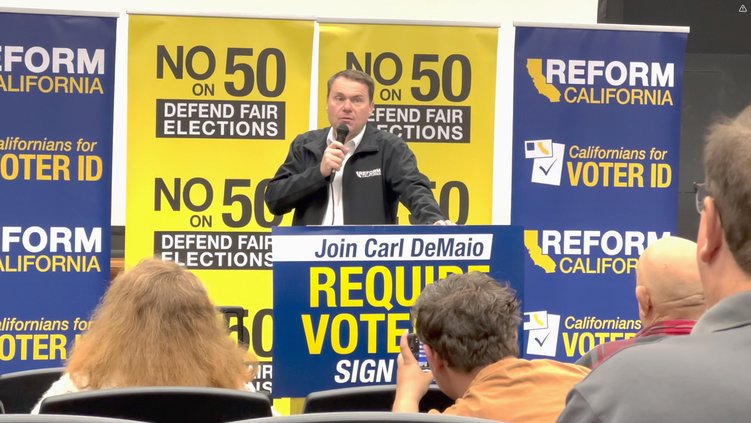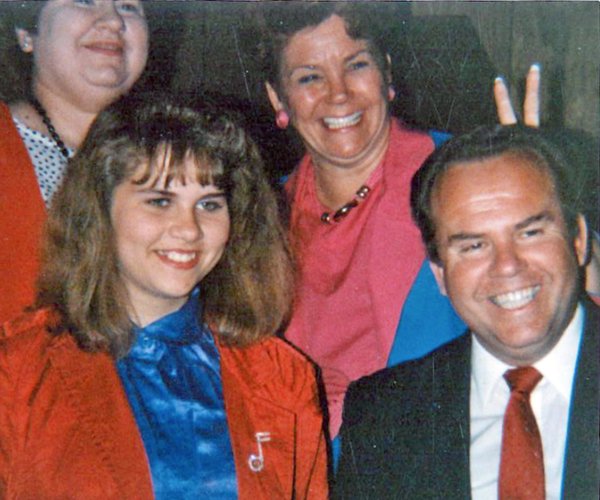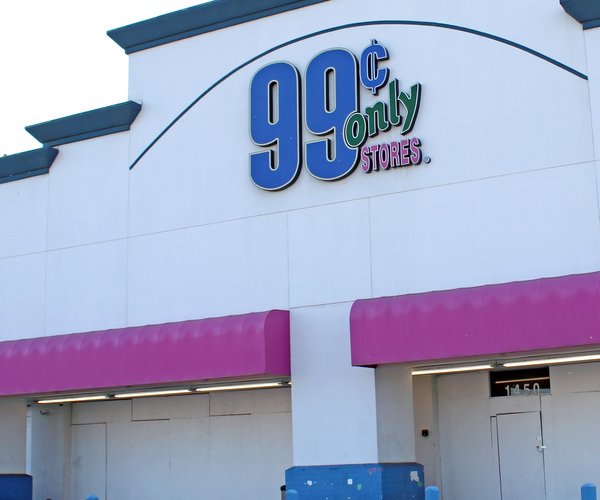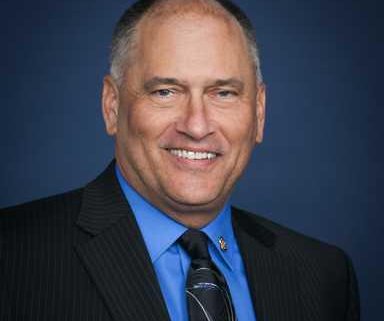Carl DeMaio, head of Reform California and a freshman member of the California State Assembly, came to Modesto recently to drum up support to collect signatures to put voter ID on the 2026 ballot.
DeMaio believes most Californians want voter ID to help insure fair elections and claims 54 percent of Democrats are also in favor. He claims that two million of the 23 million persons registered to vote in California are ineligible because they have either left the state or are illegal immigrants.
“I call them orphan ballots,” said DeMaio. “When you mail out a ballot to someone who no longer lives here, or is not eligible, you’ve now created an orphan ballot and that orphan ballot is the perfect prime target of the ballot harvesters, these shady groups that go out and select and collect these ballots.”
The measure he is promoting would require any voter to produce one of seven government issued documents proving their legal citizenship; or obtain a free voter ID card. Those would include a Social Security card.
DeMaio also wants the voter rolls cleaned up by giving the power to county clerks to clean up voter rolls and audit those rolls every two years.
“You’ve got good registrars in most counties … saying ‘I took an oath of office to make sure we have a clean election but I have to keep dead people on the ballot, I’ve got to keep felons on the ballot, I’ve got to keep illegal immigrants on the ballot, people who moved away long ago.’ And you have a secretary of state saying ‘you’re not allowed to do it.’”
He also noted that state politicians passed a law that forbids jury commissioners from sharing information with the registrar of voters in the event that someone checks the “I am not a U.S. citizen” box on a jury summons as to a reason why they need to be excused from jury duty.
DeMaio said that “I am not a U.S. citizen” box is the most checked box in the Central Valley.
“Oh, here’s the kicker: the only people getting the jury summons are people on the voter rolls and the number one checked box is ‘I’m not a citizen’ and therefore you get to excuse me from service. This is so easy to fix but they intentionally pass laws limiting what information can be shared.”
“I’m here bringing a message of hope, because a lot of Californians, they’ve given up hope,” said DeMaio, a San Diego Republican. “The state they once loved is absolutely irredeemable and has become corrupted. It’s intolerable, as their counting down a day until they can pack up a U-Haul, get the hell out and they don’t want to do that. It breaks their heart at the notion they’re gonna leave, everything they’ve built in California, all the memories, the beautiful state that we have and have to go to somewhere a lot worse in terms of all the things they love. But they also, those other states have a little bit more rational policy in terms of the better government.”
While the GOP is gaining in membership and Democrat voter registration numbers are stagnant, DeMaio faulted the state Republican Party and GOP members who “sell us out.”
“Californians are waking up, and they’re angry with the direction of our state, and they’re looking for an alternative, but they don’t particularly like the Republican Party. They don’t like the Republican brand. Our brand is as bad as Wendy’s when they found a finger in the chili.”
Latinos are moving away from the Democratic Party to the GOP, stated DeMaio at the recent Modesto Junior College gathering. That shift led to Trump winning five counties in 2024 which he didn’t win in 2022; and Republicans winning four seats in the state Assembly.
He continued to blast away at the state Republican Party, calling it ineffective.
“In the last election, the Republican Party spent $8 million on four assembly seats and ran the lousy campaigns and lost all four of those seats. Again, they are losers when it comes to how they run campaigns and they have campaign consultants who grift, they take most of the money, they pocket it. They are funded to fail.”
Reform California, on the other hand, backed two successful Latino candidates Jeff Gonzalez and Leticia Castillo in two Southern California state Assembly races which the state party wrote off because “the Democrats double-digit advantage on registration.”
“The Democrats spent a million dollars for their candidates in seats. We only spent $70,000. Our candidates split both seats.”
He said that while a number of Latinos may still be registered Democrats “they’re voting common sense – they understand the price of gas, the price of milk and butter and the fact that their schools are failing.”
DeMaio suggested Democrats are out of step with Californians in their attitudes toward crime.
“Take Prop 36 in the last election. Democrats killed it six years in a row. They said it was controversial. What? Make crime illegal again? That’s really controversial.”
Prop 36 ended up passing with 68.7 percent voter approval.
DeMaio gleefully noted that Democrats spent millions of dollars recruit registered Democrat voters statewide, only to realize a net gain of 191 between Feb. 1 and Oct. 5. By contrast, the GOP spent nothing and gained 50,000 new voters.
“There’s a hunger for change but we’re not seeing it move the needle on seats rapidly enough for our satisfaction.”
As a newcomer to the state Assembly, DeMaio said California’s biggest problem is the “wretchedly corrupt system of government.”
“Money is the root of the corruption.”
He noted that special interest groups doled out $70,000 in free gifts last year, including trips to Maui, Kentucky derby and steak dinners. Legislators are given fat campaign contributions in exchange for votes, he said, while those who buck the special interests are threatened with support for opponents to “take them out.”
DeMaio’s organization was among the promoters of the recent No on 50 special election. California voters passed Prop. 50 on Nov. 4 which allows Democrats to control redistricting in the state and result in five fewer GOP members of Congress.
Opponents are suing to overturn 50, saying it violates the California Voters Rights Act intended to carve districts that take into consideration minority voters.
